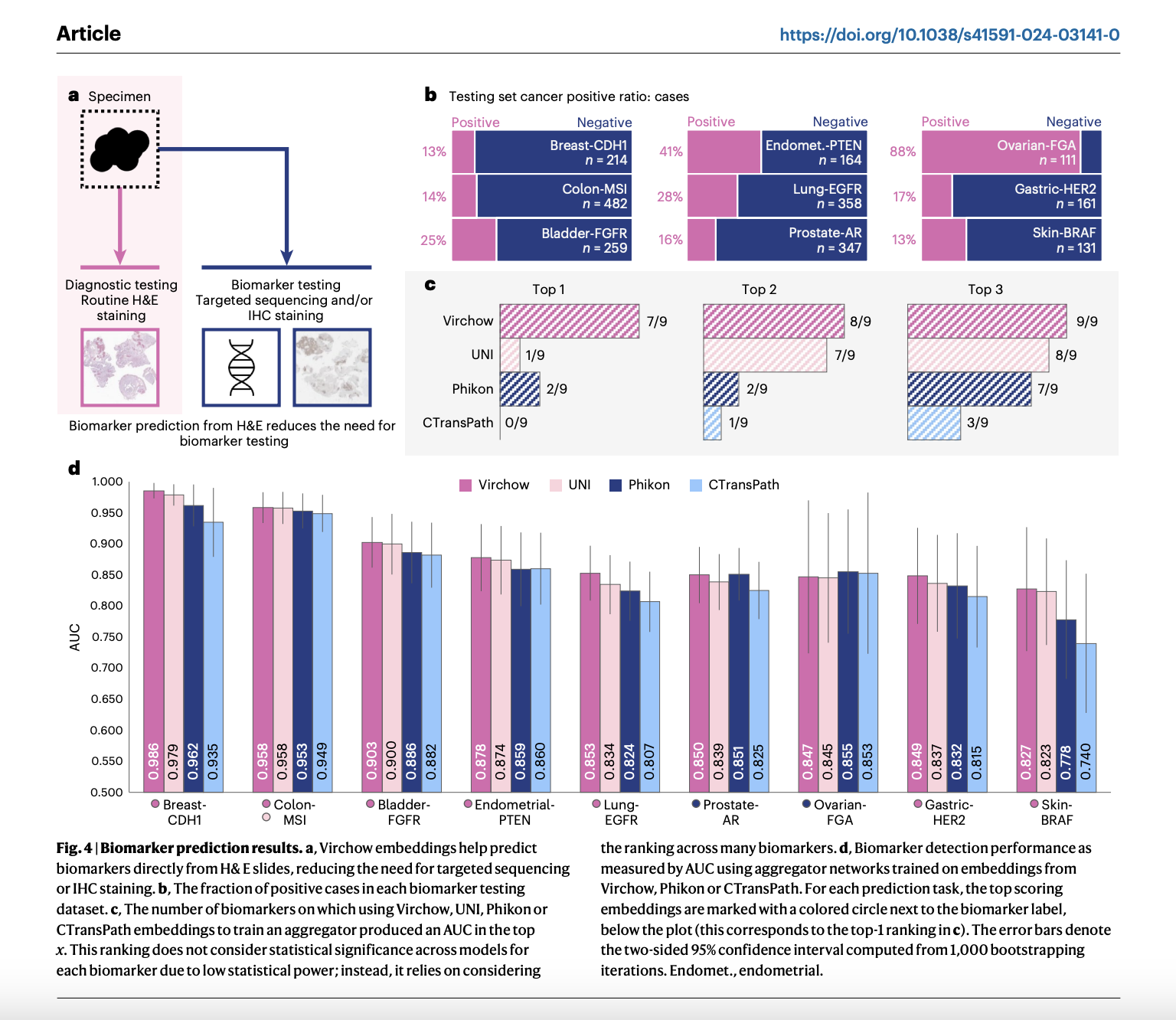
Practical Solutions and Value of Computational Pathology with AI
Transitioning to Routine Clinical Practice
Using whole-slide images (WSIs) and artificial intelligence (AI) in computational pathology enables improved diagnosis, characterization, and understanding of diseases, with the potential to revolutionize cancer prediction, subtyping, and therapeutic response.
Foundation Models and Self-Supervised Learning
Utilizing large-scale deep neural networks and self-supervised learning, foundation models can be trained on massive datasets, allowing for generalization to various prediction tasks and overcoming limitations of diagnostic-specific methods.
Virchow2 and Virchow2G Models
Developed using the largest known digital pathology dataset, these models represent a significant advancement in computational pathology, excelling at detecting minute details in cell architecture and shapes, as well as predicting gene activity. Their performance inspires optimism for the future of cancer diagnosis and treatment.
AI Adoption for Business Transformation
Organizations can leverage AI to redefine their work processes, stay competitive, and identify automation opportunities, with a focus on selecting AI solutions aligned with their needs and gradually implementing them for measurable impacts on business outcomes.
Connect with Us
For AI KPI management advice and continuous insights into leveraging AI, reach out to us at hello@itinai.com or follow our updates on Telegram and Twitter.



























